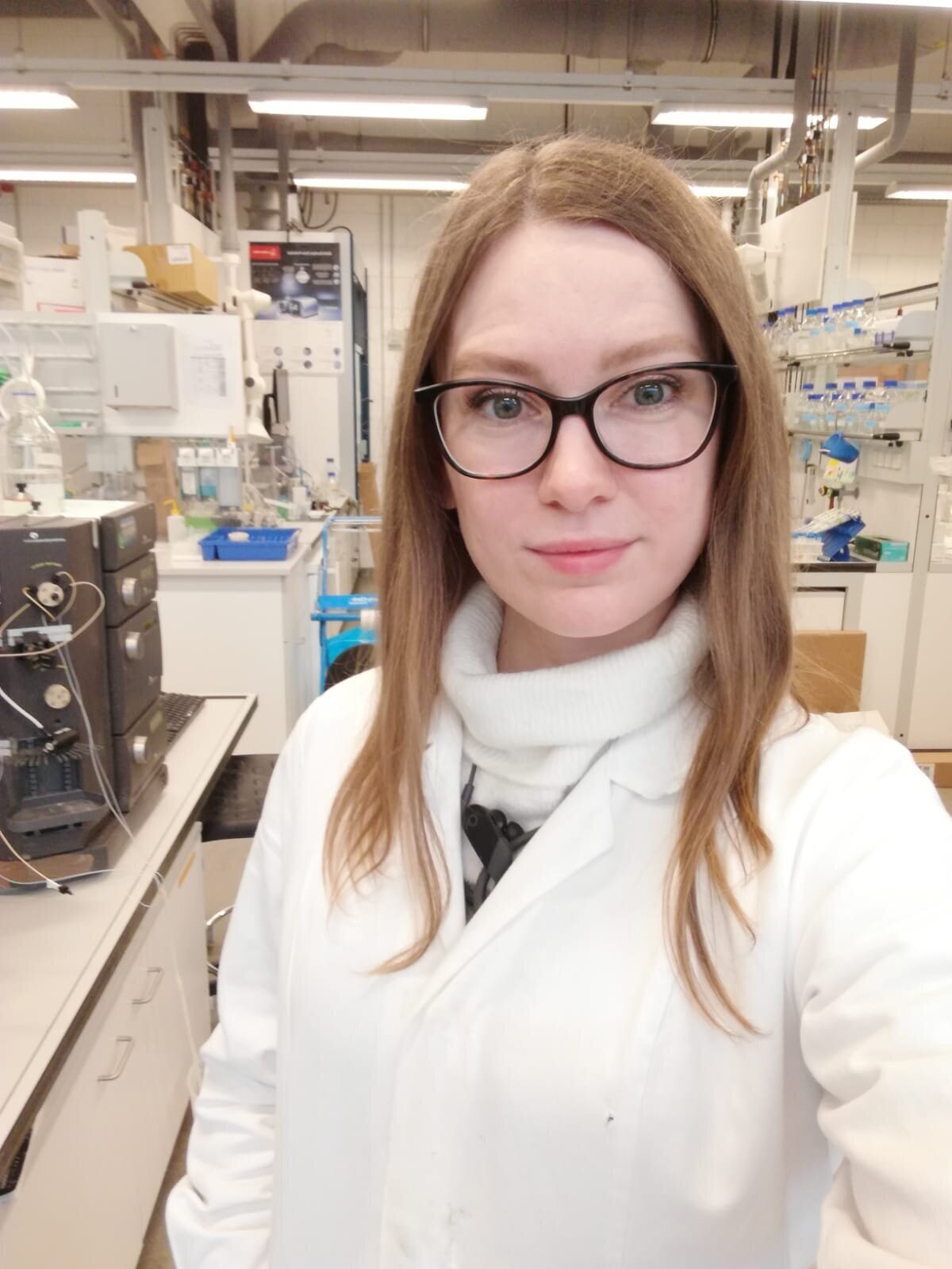Most of the undergraduate students at Jacobs University see themselves continuing their education after their bachelor’s degree. For some, that means getting a master’s degree, however, for others, it also includes a Ph.D.
One of these people is Lisa-Marie Herlevi from Finland. She is a Ph.D. student at Jacobs University working in the research group led by Professor Fernandez-Lahore. She became interested in Jacobs University when she saw that there is a Ph.D. position in the Biochemical Engineering field. “The position was in an EU-funded project called CODOBIO and the topic was about developing a continuous purification system for biologics in collaboration with industrial partners”, Lisa says. This was a great opportunity for her since she had graduated from the Tampere University of Technology with a degree in Environmental and Energy Engineering with a focus on Biorefining Engineering. Moreover, during her undergraduate studies, she had spent one year as an exchange student at the University of Stuttgart, therefore Germany was already familiar for her and easier to adapt to.

We asked Lisa, how does her day as a Ph.D. student looks like at Jacobs University, to which she responded: “I generally try to keep my working hours around 8 per day to fit free time in my schedule. However, some days, there might be the need to work for 12 hours on an experiment. Luckily, those days are generally rare. Having a schedule for your Ph.D. project is really important since it is mostly independent work and there might not be set deadlines except the time limit which for me is 3 years.”
Lisa shares that during her free time off work, she likes spending time with her friends or doing sports. She has a history of ice skating and likes going to the gym. “I also started a yoga course offered by the university but unfortunately, due to the pandemic, it had to be canceled”, she shares and recommends in the meantime, taking walks or going for a run outside.
What about after the Ph.D., do you have any plans?
“I am planning to work in the industry, but the field could vary from biopharmaceuticals (with which I am working right now) to biochemicals or biofuels. I found industrial biotechnology more attractive compared to the chemical and petrochemical industry due to the more environmentally friendly production processes and since the field is relatively new there are still a lot of challenges to solve related to transferring the technology from laboratory to industrial manufacturing.”
When asked about her predictions, Lisa shares that in 10 years, she sees herself having gathered experience from different areas of industrial biotechnology and either leading a research and development team or having her own company. “I would also like to work between the industry and academia as I am doing during my Ph.D. project”, she adds. She shares that her favorite place to visit is Finland (her home country) because her family and close friends live there. She thinks it is a great place for a relaxing holiday no matter the season because of the people and nature there.
How does your home country differ from Germany?
“When compared to Germany, Finland has smaller cities and more accessible nature which is my favorite part of the country. Germany as a country is more multicultural, for example, in my research group, there are no two people with the same nationality. I really enjoy that.”
Lastly, Lisa shares with us what would she advise her younger self: “Have more confidence to pursue the career path that felt right. Due to lack of independent research work, I had doubts about being able to obtain a Ph.D. degree.” And here she is now, half-way through her Ph.D. working on bettering the industry and progressing into her future plan. The Jacobs student body can expect an email with her Ph.D. thesis publication in 2022.
Until then, we wish Lisa-Marie the best of luck on her research project.
BY KREMENA TERZIEVA (BULGARIA) | CLASS OF 2021
